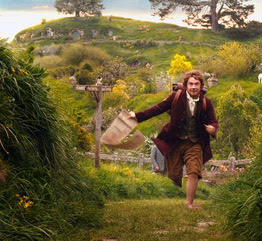
As you may have already heard, Gotham’s latest writing contest asks people to tell a story about a hero, which got me thinking about Joseph Campbell, a hero of mine.
In his indispensible book The Hero With a Thousand Faces, Campbell — a renowned scholar, author, and mythologist—examined hero stories from cultures all over the world and through the ages, identifying several universal threads all of them share. One of the main common traits is a basic structure, which Campbell called The Hero’s Journey. It involves a quest, allies and villains, and (big surprise) a seemingly-impossible, life-changing challenge.
Before the hero can face the big challenge, though, they must clear two hurdles: First, they must abandon the familiarity of home, and step into a wider, more threatening, often confusing world; second, as the hero encounters new people (or gods, or monsters) and learns their customs and values, he is forced to re-evaluate his own beliefs and must decide for himself what is right and just.
Campbell called the hero’s strange new world the world of original experience. “Original experience has not been interpreted for you,” he once said, “so you’ve got to work out your life for yourself.”
Take, for example, the character of Meg Murry in Madeleine L’Engle’s novel A Wrinkle In Time. Before she travels through time and space to find her missing father, Meg, an unpopular misfit, is told by several adults that she is too impatient, temperamental, and stubborn for her own good. But away from her home and faced with the daunting task of rescuing not only her father but also her younger brother, Meg discovers her so-called flaws serve her beautifully.
On her journey, as she is living her “original experience,” Meg is offered the chance to fit in with a new society. She considers the advice about her temperament, and she confronts her yearning to belong, and ultimately rejects them both. She does so partly to save her family, but she also realizes that it is more important for people to live as equals than it is for everyone to think and act alike, simply for the sake of fitting in.
In writing a hero’s story, it’s easy to focus on the dangers or the villain — the fire-breathing dragon, the maniacal despot — because that’s where the drama is.
But we must not neglect the heart of the hero herself. It’s that heart that guides her through the darkest, most dangerous parts of the journey. It makes her worth rooting for. Ultimately, it’s what makes her … heroic.

Kelly Caldwell
Dean of Faculty


